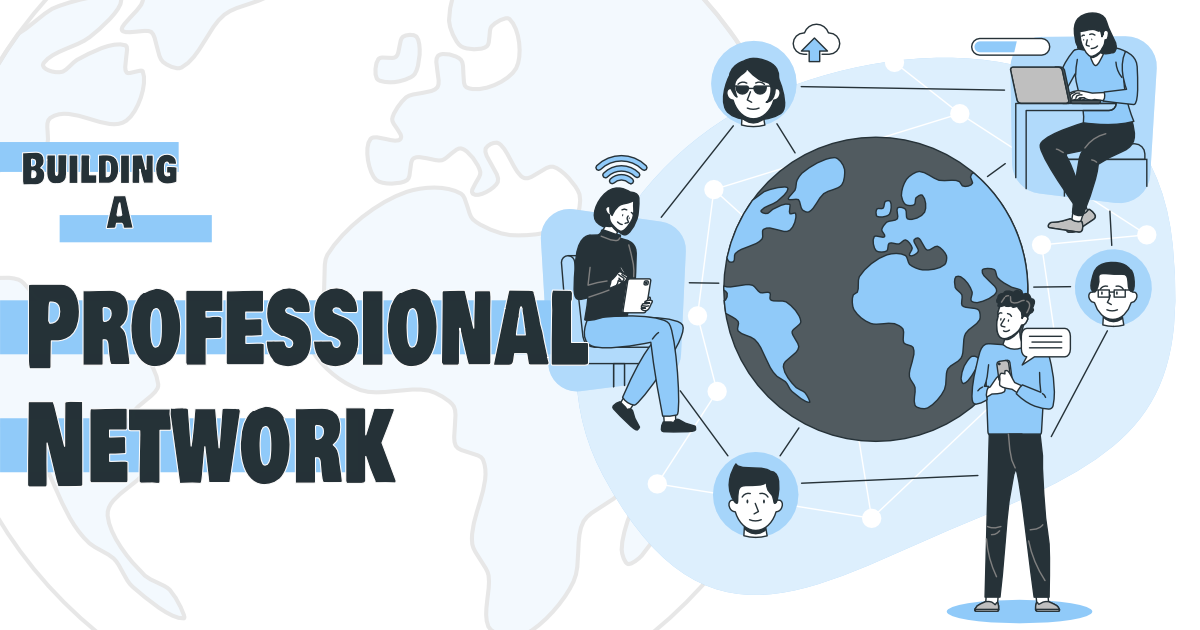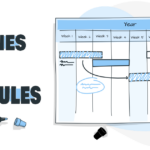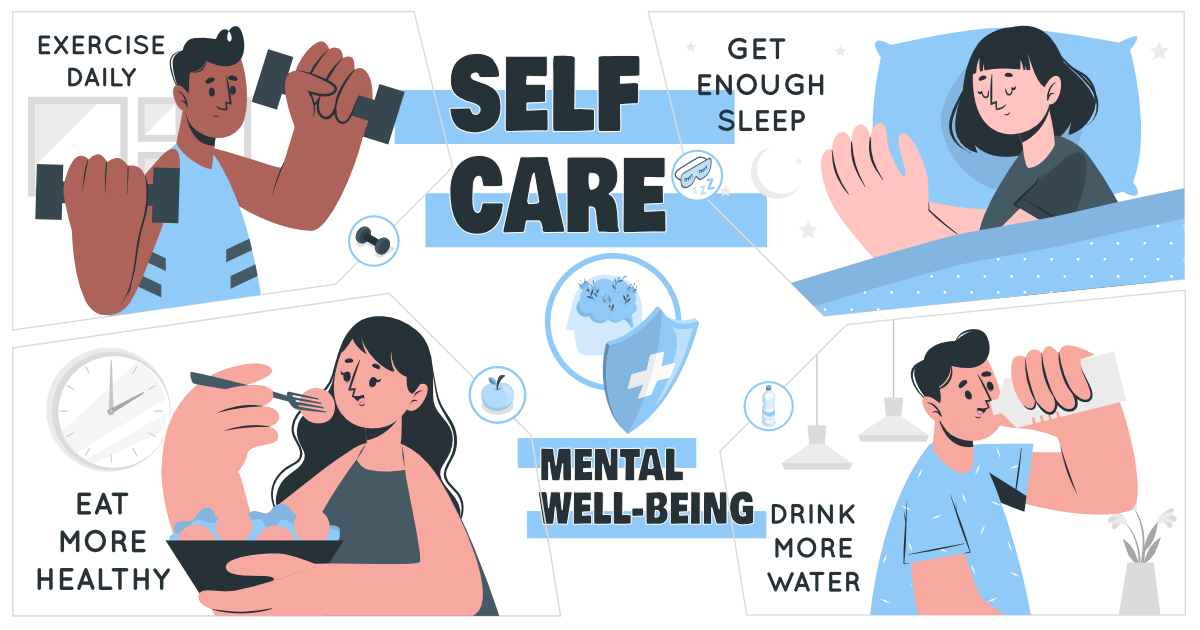Building a professional network is a crucial aspect of being an entrepreneur. It not only helps to expand your reach and gain access to new opportunities, but it also allows you to tap into the collective wisdom and experience of others in the entrepreneurial community. Whether you’re looking to secure funding, find new partners or customers, or simply gain new perspectives on your business, a strong professional network can be an invaluable asset. In this blog post, we’ll explore some strategies for building a professional network that can help to take your business to the next level.
Identifying and connecting with potential mentors and advisors
As an entrepreneur, you are constantly learning and growing, but you don’t have to go through the process alone. One of the best ways to accelerate your growth is to seek out mentors and advisors who can provide guidance, advice, and support as you navigate the challenges of starting and scaling a business. In this article, we’ll explore some strategies for identifying and connecting with potential mentors and advisors who can help you take your business to the next level.
Identifying Potential Mentors and Advisors
The first step in building a mentorship or advisory relationship is identifying the right people to approach. When it comes to mentors, look for individuals who have experience and expertise in areas that align with your business goals. Advisors, on the other hand, should have experience and skills that complement your own. You can find potential mentors and advisors through a variety of channels, including:
- Professional associations and networking groups
- Online communities and forums
- Referrals from friends, colleagues, and industry contacts
- Events and conferences
It’s important to note that mentors and advisors don’t have to be in the same industry as you, in fact, sometimes an outsider perspective can be very valuable.
Best practices for connecting
Once you’ve identified potential mentors and advisors, the next step is to make a connection. Here are a few best practices to keep in mind:
- Be respectful of their time and schedule.
- Clearly articulate your goals and objectives for the relationship.
- Show them the value in investing their time and energy in you and your business.
- Offer something in return, such as a valuable introduction or an opportunity to collaborate on a project.
- Follow up after your first meeting, to stay in touch and to thank them for their time.
Examples
- A young entrepreneur who wants to start a business in the renewable energy sector, reached out to a retired executive who had a long career in the oil and gas industry. The retired executive not only provided valuable insights into the energy sector but also introduced the young entrepreneur to key decision-makers in the industry.
- A startup founder reached out to a successful entrepreneur in the same field for mentorship. The successful entrepreneur not only provided guidance on growing the business but also introduced the startup founder to potential investors and customers.
In conclusion, having a mentor or advisor can be incredibly beneficial to an entrepreneur. It can help you learn from someone else’s experience, gain valuable insights and advice, and make valuable connections. By identifying and connecting with the right mentors and advisors, you can give your business a competitive edge and accelerate your growth.
References
- “The Power of Mentorship: How to Find and Choose the Right Mentor” by Forbes
- “How to Find a Mentor: Tips from Successful Entrepreneurs” by Entrepreneur
Building relationships with industry leaders and peers
Networking and collaboration are key to building a successful business. One of the most important aspects of networking is building relationships with industry leaders and peers. By establishing connections with key players in your industry, you can gain access to new opportunities, learn from their experiences, and benefit from their resources and expertise. In this article, we’ll explore some strategies for building relationships with industry leaders and peers in the entrepreneurial community.
Identifying Industry Leaders and Peers
The first step in building relationships with industry leaders and peers is identifying the right people to connect with. Look for individuals who are respected and influential in your industry, and who have a track record of success. You can find potential industry leaders and peers through a variety of channels, including:
- Professional associations and networking groups
- Online communities and forums
- Referrals from friends, colleagues, and industry contacts
- Events and conferences
Best Practices for Building Relationships
Once you’ve identified potential industry leaders and peers, the next step is to establish a connection. Here are a few best practices to keep in mind:
- Be respectful of their time and schedule.
- Show genuine interest in their work and expertise.
- Offer something of value, such as a valuable introduction or an opportunity to collaborate on a project.
- Follow up after your first meeting, to stay in touch and to thank them for their time.
- Be consistent and persistent, building relationships takes time and effort.
Examples
- An entrepreneur in the health-tech industry, attended a conference and met an industry leader. They started talking about the challenges in the industry, and the entrepreneur shared a new technology that could help solve one of the challenges. The industry leader was impressed and they decided to meet again to explore a potential collaboration.
- A startup founder reached out to a successful entrepreneur in the same field to ask for advice. They met for coffee, and the successful entrepreneur shared valuable insights on scaling the business. They stayed in touch and eventually the successful entrepreneur introduced the startup founder to key investors.
In conclusion, building relationships with industry leaders and peers can be incredibly valuable for entrepreneurs. It can help you gain access to new opportunities, learn from others’ experiences, and benefit from their resources and expertise. By identifying and connecting with the right industry leaders and peers, you can give your business a competitive edge and accelerate your growth. It’s important to remember that building relationships takes time and effort, and it’s a continuous process, don’t give up.
References
- “Building Relationships with Industry Leaders” by Inc.
- “Networking for Entrepreneurs: How to Build Relationships with Peers and Industry Leaders” by Entrepreneur
Networking at industry events and conferences
Networking and collaboration are key to building a successful business. One of the most effective ways to connect with industry leaders and peers is by attending industry events and conferences. These events provide a platform for entrepreneurs to meet, share ideas, and establish connections with key players in their industry. In this article, we’ll explore some strategies for networking at industry events and conferences.
Preparing for the Event
Before attending an industry event or conference, it’s important to prepare. Here are a few things to keep in mind:
- Research the conference or event, including the schedule, attendees, and keynote speakers.
- Identify the key players you want to connect with and research them ahead of time.
- Prepare a brief introduction and a list of questions to ask.
- Bring business cards and a way to take notes.
Networking at the Event
Once you’re at the event, it’s important to make the most of your time. Here are a few best practices to keep in mind:
- Be proactive and take initiative.
- Introduce yourself and make small talk.
- Take advantage of opportunities to connect, such as coffee breaks and networking receptions.
- Follow up with the people you meet after the event.
Examples
- An entrepreneur in the food-tech industry, attended a conference and met an industry leader. They started talking about the challenges in the industry, and the entrepreneur shared a new technology that could help solve one of the challenges. The industry leader was impressed and they decided to meet again to explore a potential collaboration.
- A startup founder reached out to a successful entrepreneur in the same field to ask for advice. They met for coffee, and the successful entrepreneur shared valuable insights on scaling the business. They stayed in touch and eventually the successful entrepreneur introduced the startup founder to key investors.
In conclusion, attending industry events and conferences is a great way for entrepreneurs to connect with industry leaders and peers. By preparing for the event, networking effectively, and following up after the event, you can establish valuable connections that can benefit your business. It’s important to remember that networking is a continuous process and it’s not just about making connections, but building relationships that can help you and your business grow.
References
- “Networking at Conferences: How to Make the Most of Your Time” by Entrepreneur
- “Effective Networking at Industry Events and Conferences” by Forbes
Utilizing social media and online platforms to connect with professionals
Building a professional network is not limited to in-person interactions and events. Social media and online platforms have made it easier than ever to connect with professionals in your industry. In this article, we’ll explore how entrepreneurs can use social media and online platforms to build their professional network.
Best Practices for Social Media
Here are a few best practices to keep in mind when using social media to connect with professionals:
- Be selective about the platforms you use. Choose the platforms where your target audience is most active.
- Create a professional profile and use a consistent handle across all platforms.
- Share valuable content, insights, and updates on your industry.
- Engage with others by commenting, liking, and sharing their posts.
- Use hashtags to increase visibility and reach a wider audience.
Examples
- A business coach used LinkedIn to connect with other coaches and industry experts. She shared valuable content and engaged with others in the coaching community. As a result, she was able to establish herself as a thought leader and attract new clients.
- A startup founder used Twitter to connect with investors, potential partners, and customers. He shared updates on his company and engaged with others in the startup community. As a result, he was able to secure funding and establish valuable partnerships.
In conclusion, social media and online platforms have made it easier than ever to connect with professionals in your industry. By following best practices, such as being selective about the platforms you use, creating a professional profile, and engaging with others, entrepreneurs can use these platforms to build their professional network and grow their business. Remember to be authentic and consistent in your approach as it will help you to build trust and credibility with your network.
References
- “The Power of Social Media Networking” by Inc.
- “Using Social Media to Build Your Professional Network” by Forbes
Joining professional organizations and networking groups
Joining professional organizations and networking groups is another great way to build a professional network. These groups provide opportunities to connect with like-minded individuals, share knowledge and resources, and stay up-to-date on industry trends and developments. In this article, we’ll explore the benefits of joining professional organizations and networking groups and provide best practices for making the most of these connections.
Benefits of Joining Professional Organizations and Networking Groups
- Connect with like-minded individuals in your industry
- Share knowledge and resources with others
- Stay up-to-date on industry trends and developments
- Access to networking events, conferences, and industry-specific resources
- Opportunities for professional development and advancement
Best Practices for Joining Professional Organizations and Networking Groups
- Research different organizations and groups to find the ones that align with your goals and interests.
- Attend events and meetings to connect with other members.
- Volunteer for leadership roles and committee positions to increase your visibility and credibility.
- Share your expertise and knowledge with others through speaking engagements, articles, or other forms of content.
Examples
- A marketing professional joined the American Marketing Association and attended their monthly meetings. She volunteered to be on the events committee and helped organize a networking event. As a result, she was able to connect with other marketing professionals and establish herself as a thought leader in the community.
- A startup founder joined a local entrepreneur networking group and attended their monthly meetings. He shared updates on his company and asked for feedback from other entrepreneurs. As a result, he was able to establish valuable relationships and secure funding for his business.
In conclusion, joining professional organizations and networking groups is a great way to build a professional network and stay up-to-date on industry trends and developments. By following best practices, such as researching different groups and volunteering for leadership roles, entrepreneurs can make the most of their connections and advance their careers. Remember to be consistent and active in your participation in these groups, as it will help you to build trust and credibility with your network.
References
- “The Benefits of Joining Professional Organizations” by Entrepreneur
- “Networking Groups for Entrepreneurs: How to Find and Join Them” by Small Business Trends
Creating and maintaining a professional online presence
In today’s digital age, having a professional online presence is crucial for building a professional network and advancing your career. Your online presence is often the first thing potential mentors, advisors, industry leaders, and peers will see, so it’s important to make a good impression. In this article, we’ll explore the importance of creating and maintaining a professional online presence and provide best practices for doing so.
Importance of a Professional Online Presence
- It’s often the first thing potential mentors, advisors, industry leaders, and peers will see
- It helps you establish credibility and trust with your network
- It provides a platform for sharing your expertise and knowledge
- It can help you stay top-of-mind with your network
- It can help you establish yourself as a thought leader in your industry
Best Practices for Creating and Maintaining a Professional Online Presence
- Use a professional photo for your profile
- Keep your profile information up-to-date and relevant
- Use a consistent tone and voice across all of your online profiles
- Share valuable and relevant content regularly
- Engage with your network by responding to comments and messages
- Create a personal website or blog
- Use social media platforms like LinkedIn, Twitter, and Instagram to connect with professionals and share your thoughts and ideas
Examples
- A business consultant created a personal website where she shared her expertise and knowledge on business strategy and growth. She also used LinkedIn to connect with other consultants and industry leaders. As a result, she was able to establish herself as a thought leader in the consulting industry and grow her client base.
- A startup founder used Twitter to share updates on his company and engage with other entrepreneurs and investors. He also created a LinkedIn profile where he shared his experience and expertise. As a result, he was able to establish valuable relationships and secure funding for his business.
In conclusion, having a professional online presence is crucial for building a professional network and advancing your career. By following best practices such as, keeping your profile information up-to-date, sharing valuable and relevant content regularly and engaging with your network, entrepreneurs can make a good impression and establish themselves as thought leaders in their industry. Remember, your online presence is a reflection of you and your brand, so keep it professional and consistent across all platforms.
References
- “Why You Need a Professional Online Presence” by Forbes
- “The Importance of a Professional Online Presence” by Entrepreneur
Developing and nurturing relationships through email and phone communication
Networking and building professional relationships is not just about face-to-face interactions, it’s also about communication through other channels such as email and phone. Email and phone communication can be an effective way to follow up with potential mentors, advisors, industry leaders, and peers, as well as keeping in touch with your existing network. In this article, we’ll explore the importance of email and phone communication in building and nurturing relationships and provide best practices for doing so.
Importance of Email and Phone Communication
- It allows you to reach out to potential mentors, advisors, industry leaders, and peers who you may not have had the opportunity to meet in person
- It allows you to follow up with people you’ve met at networking events and conferences
- It allows you to stay in touch with your existing network and keep them updated on your professional activities
- It allows you to build deeper, more meaningful relationships with your network
Best Practices for Email and Phone Communication
- Be clear and concise in your email and phone communication
- Use a professional tone and language
- Personalize your email and phone communication as much as possible
- Follow up in a timely manner
- Use email and phone communication to add value to the other person’s life or business
Examples
- An entrepreneur reached out to a potential mentor via email, expressing his interest in learning more about the mentor’s business and asking for advice on how to grow his own business. The mentor responded positively and agreed to meet with the entrepreneur in person. This led to a valuable mentorship relationship that helped the entrepreneur grow his business.
- A marketing professional reached out to an industry leader via phone, requesting an informational interview. The industry leader agreed and the two had a productive conversation that led to the marketing professional gaining valuable insights and building a relationship with the industry leader.
In conclusion, email and phone communication can be an effective way to build and nurture relationships in the entrepreneurial community. By following best practices such as being clear and concise, personalizing communication and adding value to the other person’s life or business, entrepreneurs can establish valuable connections and advance their careers. Remember to always be professional and respectful in your email and phone communication, and to keep in touch with your existing network.
References
- “Effective Email Communication for Networking” by Entrepreneur
- “The Art of Networking via Phone” by Forbes
Asking for referrals and recommendations from colleagues
Networking and building professional relationships is not just about reaching out to new people, it’s also about leveraging the connections you already have. One effective way to do this is by asking for referrals and recommendations from colleagues. In this article, we’ll explore the importance of referrals and recommendations in networking and provide best practices for asking for them.
Importance of Referrals and Recommendations
- Referrals and recommendations can help you establish credibility and trust with potential mentors, advisors, industry leaders, and peers
- Referrals and recommendations can help you open doors to new opportunities and connections
- Referrals and recommendations can help you build deeper, more meaningful relationships with your network
Best Practices for Asking for Referrals and Recommendations
- Be specific about the type of referral or recommendation you’re looking for
- Be clear about how the referral or recommendation will benefit the other person
- Be respectful of the other person’s time and resources
- Provide a clear, compelling reason why the referral or recommendation is important to you
- Say thank you and follow up with the referral or recommendation
Examples:
- An entrepreneur reached out to a colleague and asked for a referral to a potential mentor who had experience in scaling a business. The colleague provided the referral, which led to a valuable mentorship relationship that helped the entrepreneur grow his business.
- A marketing professional reached out to a colleague and asked for a recommendation on LinkedIn. The colleague provided the recommendation, which helped the marketing professional establish credibility and trust with potential clients and industry leaders.
In conclusion, asking for referrals and recommendations from colleagues is an effective way to leverage the connections you already have and establish credibility and trust with potential mentors, advisors, industry leaders, and peers. By following best practices such as being specific, respectful, and providing a clear, compelling reason why the referral or recommendation is important to you, entrepreneurs can open doors to new opportunities and connections. Remember to always say thank you and follow up with the referral or recommendation.
References
- “The Power of Referral Networking” by Inc.
- “The Art of Asking for a Recommendation” by Harvard Business Review
Leveraging personal and professional connections to gain access to new opportunities
Networking and building professional relationships is not just about reaching out to new people, it’s also about leveraging the connections you already have. One effective way to do this is by leveraging your personal and professional connections to gain access to new opportunities. In this article, we’ll explore the importance of leveraging connections and provide best practices for doing so.
Importance of Leveraging Connections
- Leveraging connections can help you gain access to new opportunities that may not be available to you otherwise
- Leveraging connections can help you establish credibility and trust with potential mentors, advisors, industry leaders, and peers
- Leveraging connections can help you build deeper, more meaningful relationships with your network
Best Practices for Leveraging Connections
- Be specific about the type of opportunity you’re looking for
- Be clear about how the opportunity will benefit the other person
- Be respectful of the other person’s time and resources
- Provide a clear, compelling reason why the opportunity is important to you
- Say thank you and follow up with the opportunity
Examples
- An entrepreneur leveraged a personal connection with a venture capitalist to secure funding for his startup.
- A marketing professional leveraged a professional connection with a potential client to secure a new contract.
In conclusion, leveraging personal and professional connections to gain access to new opportunities is an effective way to leverage the connections you already have and establish credibility and trust with potential mentors, advisors, industry leaders, and peers. By following best practices such as being specific, respectful, and providing a clear, compelling reason why the opportunity is important to you, entrepreneurs can open doors to new opportunities. Remember to always say thank you and follow up with the opportunity.
References
- “The Power of Leveraging Your Connections” by Forbes
- “Leveraging Personal Connections for Professional Success” by Harvard Business Review
Staying informed about industry trends and developments to improve network effectiveness
Networking and building professional relationships is not just about reaching out to new people and leveraging connections, it’s also about staying informed about industry trends and developments. By staying informed, entrepreneurs can improve their network effectiveness by staying ahead of the curve and being in the know when it comes to industry trends and developments. In this article, we’ll explore the importance of staying informed and provide best practices for doing so.
Importance of Staying Informed
- Staying informed allows entrepreneurs to stay ahead of the curve in terms of industry trends and developments
- Staying informed allows entrepreneurs to be more effective networkers by being able to talk about current industry trends and developments
- Staying informed allows entrepreneurs to identify new opportunities and potential partners
Best Practices for Staying Informed
- Subscribe to industry publications and newsletters
- Follow industry leaders and influencers on social media
- Attend industry events and conferences
- Join industry groups and associations
- Research the latest industry trends and developments
Examples
- An entrepreneur who stays informed about industry trends and developments was able to identify a new opportunity for his business by staying informed about the latest developments in artificial intelligence.
- A marketing professional who stays informed about industry trends and developments was able to establish herself as a thought leader in her field by speaking about the latest developments at industry events and conferences.
In conclusion, staying informed about industry trends and developments is an important aspect of networking and building professional relationships. By staying informed, entrepreneurs can improve their network effectiveness by staying ahead of the curve and being in the know when it comes to industry trends and developments. Entrepreneurs can stay informed by subscribing to industry publications and newsletters, following industry leaders and influencers on social media, attending industry events and conferences, joining industry groups and associations and researching the latest industry trends and developments. By staying informed, entrepreneurs can identify new opportunities and potential partners.
References
- “The Importance of Staying Informed in Business” by Entrepreneur
- “Why Staying Informed is Critical for Entrepreneurs” by Inc













